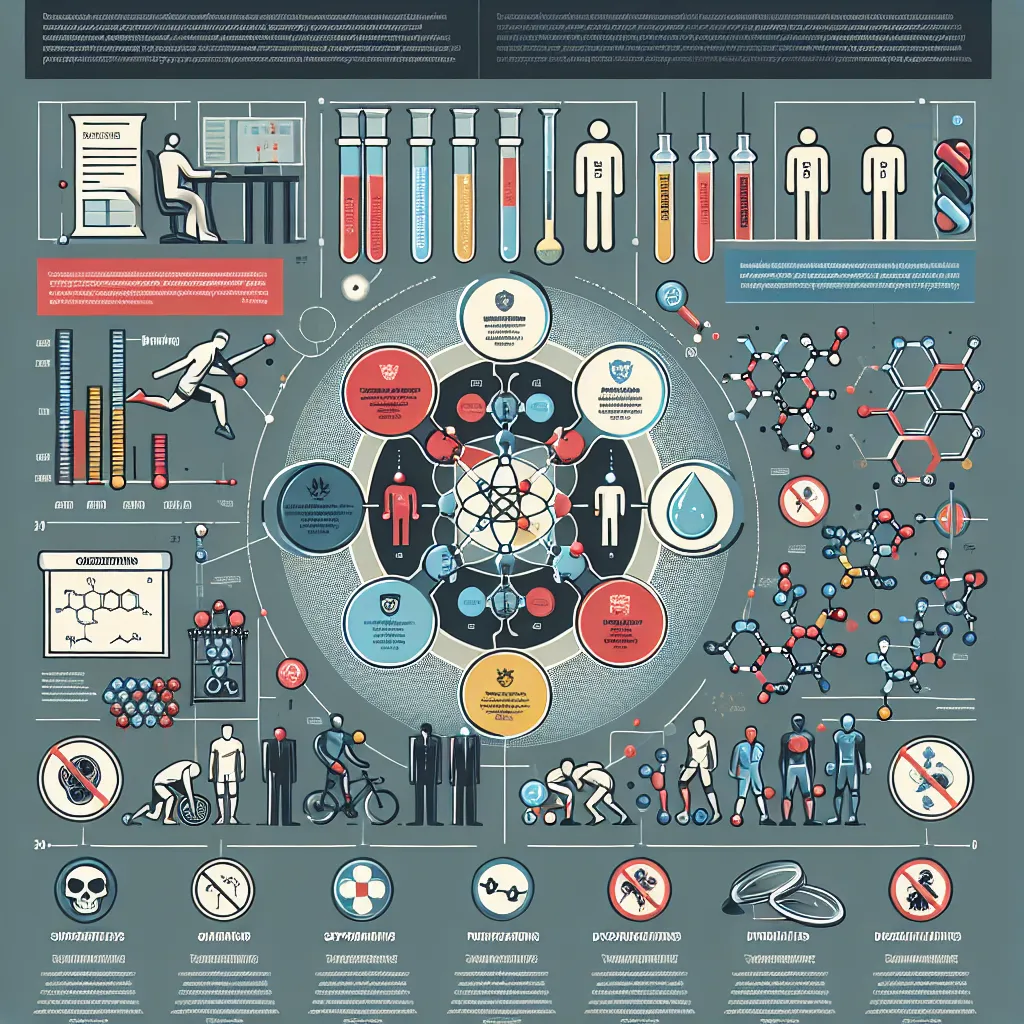“Anti-doping policies” is a crucial term in the world of sports and athletics. Let’s break it down:
Definition: Anti-doping policies are rules and regulations implemented by sports organizations to prevent, detect, and penalize the use of prohibited performance-enhancing substances in competitive sports.
Part of speech: Noun phrase
Pronunciation: /ˌæntidəʊpɪŋ ˈpɒlɪsiz/ (UK) or /ˌæntidoʊpɪŋ ˈpɑːlɪsiz/ (US)
This term is particularly relevant in sports-related contexts and is often encountered in IELTS reading and listening tests, as well as in writing and speaking tasks related to sports integrity and fair play.

Context and Usage
Examples in Context
-
The International Olympic Committee has strengthened its anti-doping policies to ensure fair competition at the upcoming games.
Analysis: This sentence demonstrates how the term is used in relation to major sporting events, emphasizing the ongoing efforts to maintain integrity in sports. -
Athletes must adhere to strict anti-doping policies throughout their careers to avoid disqualification and maintain their reputation.
Analysis: This example highlights the continuous nature of anti-doping efforts and their impact on athletes’ careers. -
The World Anti-Doping Agency regularly updates its anti-doping policies to address new performance-enhancing substances and methods.
Analysis: This sentence shows how anti-doping policies are dynamic and evolve to keep pace with new challenges in sports. -
Implementing effective anti-doping policies requires cooperation between sports organizations, governments, and medical experts.
Analysis: This example illustrates the collaborative nature of anti-doping efforts, involving multiple stakeholders. -
Critics argue that current anti-doping policies are insufficient to catch all cheaters and need to be more comprehensive.
Analysis: This sentence presents a critical perspective on anti-doping policies, demonstrating that the topic can be discussed from various angles.
Common Contexts
“Anti-doping policies” frequently appear in discussions about:
- Professional and amateur sports competitions
- Olympic and Paralympic Games
- Sports governance and ethics
- Medical and scientific advancements in performance enhancement
- Legal and regulatory aspects of sports
Frequency in IELTS
This term is moderately common in IELTS tests, particularly in:
- Reading passages about sports integrity or health in athletics
- Listening sections featuring discussions on sports regulations
- Writing Task 2 essays on fair play in sports or the ethics of performance enhancement
- Speaking Part 3 questions about sports and competition
Vocabulary Analysis
Word Structure
- “Anti-“: prefix meaning against or opposing
- “Doping”: gerund form of the verb “to dope,” referring to the use of banned substances
- “Policies”: plural noun referring to a course or principle of action
Synonyms and Antonyms
Synonyms:
- Drug-testing rules /drʌɡ ˈtestɪŋ ruːlz/ (noun phrase): Regulations for examining athletes for banned substances.
- Performance-enhancing substance regulations /pəˈfɔːməns ɪnˈhɑːnsɪŋ ˈsʌbstəns ˌreɡjʊˈleɪʃənz/ (noun phrase): Guidelines controlling the use of drugs that improve athletic performance.
- Fair play measures /feə pleɪ ˈmeʒəz/ (noun phrase): Actions taken to ensure equal and honest competition in sports.
Antonyms:
- Doping allowances /ˈdəʊpɪŋ əˈlaʊənsɪz/ (noun phrase): Hypothetical permissions for using performance-enhancing substances (not actually used in sports).
- Unregulated competition /ʌnˈreɡjʊleɪtɪd ˌkɒmpəˈtɪʃən/ (noun phrase): Contests without rules against performance enhancement.
Memorization Techniques
Mind Mapping
Create a mind map with “Anti-Doping Policies” at the center, branching out to related concepts:
- Testing procedures
- Banned substances
- Penalties for violations
- Regulatory bodies (e.g., WADA)
- Education and prevention programs
Storytelling Technique
Imagine a dedicated athlete named Alex preparing for the Olympics. Throughout their journey, they navigate the complex world of anti-doping policies, facing regular tests, studying the list of banned substances, and attending educational seminars. Alex’s commitment to fair play and adherence to these policies becomes a crucial part of their path to success.
Practice Exercises
Application in IELTS Writing
Task: Write a paragraph discussing the importance of anti-doping policies in modern sports. Use at least three related terms from the mind map.
Sample answer:
In contemporary athletics, anti-doping policies play a pivotal role in maintaining the integrity of competitions. These policies encompass a wide range of measures, including rigorous testing procedures to detect banned substances and comprehensive education programs to prevent unintentional violations. The World Anti-Doping Agency (WADA) spearheads global efforts to harmonize regulations across different sports and countries. Despite the challenges in keeping up with ever-evolving performance-enhancing methods, these policies remain crucial for ensuring fair play and protecting the health of athletes.
IELTS Speaking Practice
Imagine you’re asked this question in IELTS Speaking Part 3:
“Do you think current anti-doping policies are effective in maintaining fair competition in sports?”
Key points to cover:
- Effectiveness of current testing methods
- Challenges in detecting new substances
- Impact on athletes’ behavior and training
- International cooperation in policy implementation
- Balancing fair competition with athletes’ privacy rights
Remember to use a range of vocabulary and provide specific examples to support your points.
Conclusion
Mastering the term “anti-doping policies” and its related vocabulary is essential for success in the IELTS test, particularly when discussing sports and fair play. By understanding its context, analyzing its components, and practicing its usage, you’ll be well-prepared to tackle this topic in any section of the IELTS exam.
We encourage you to practice using this term in your own sentences and discussions. Share your experiences or questions about learning this vocabulary in the comments section below. How might you use “anti-doping policies” in a conversation about sports integrity?